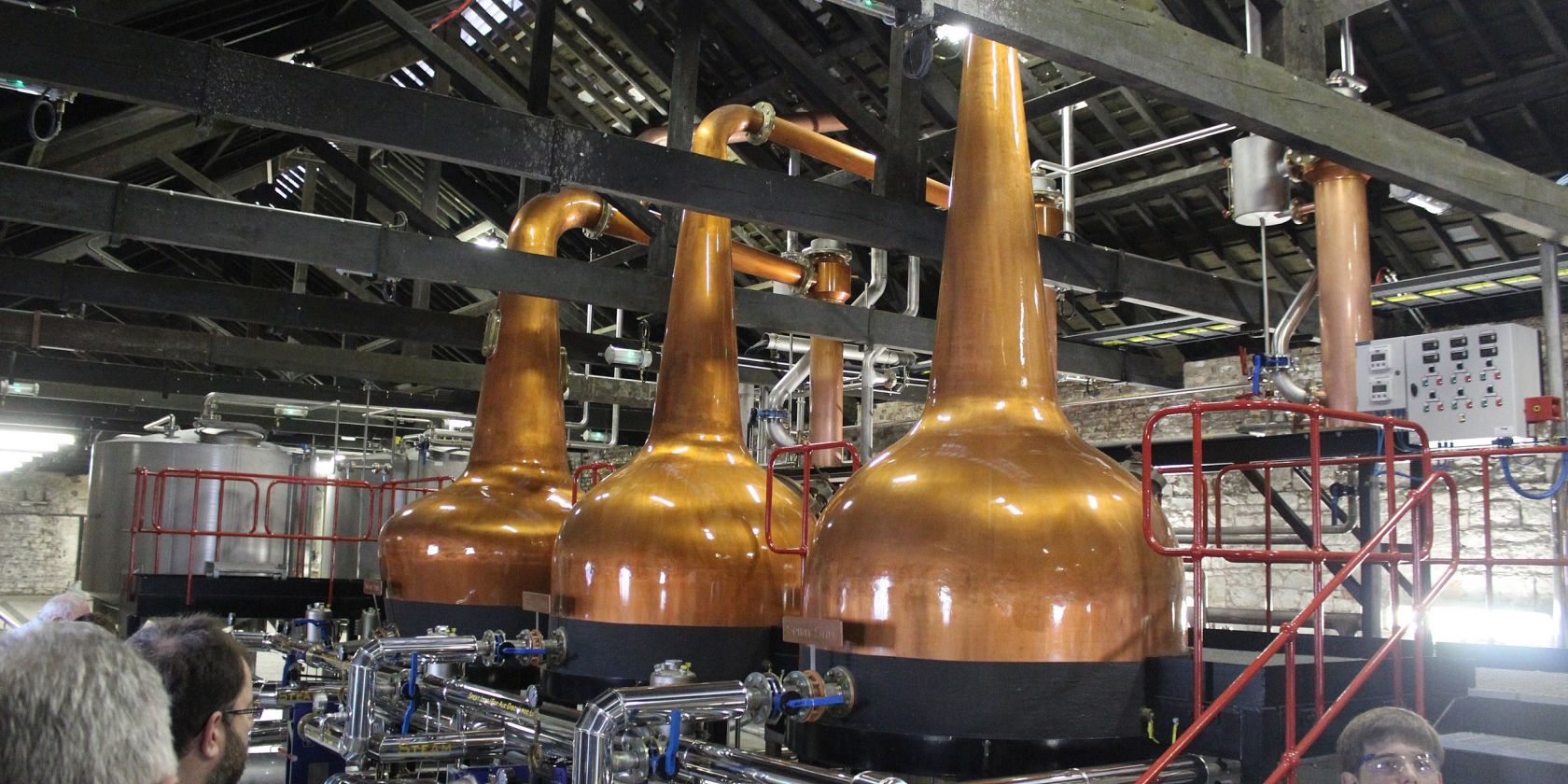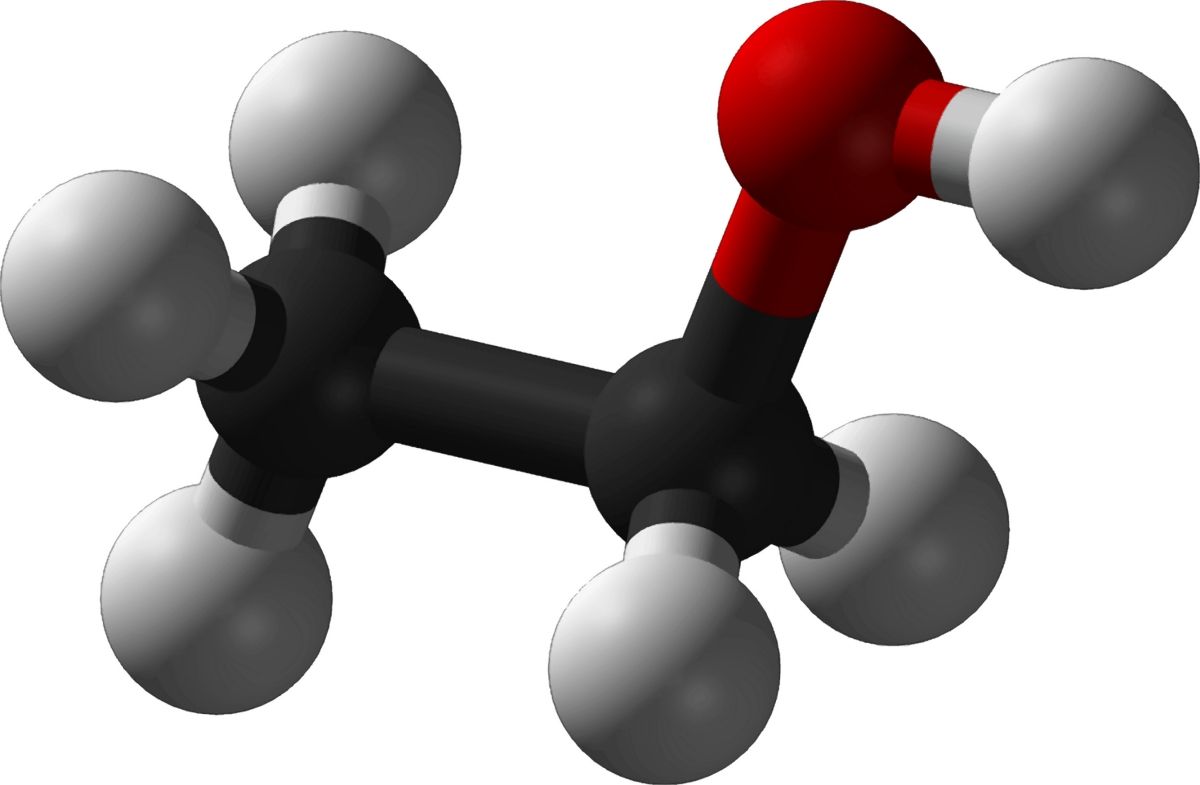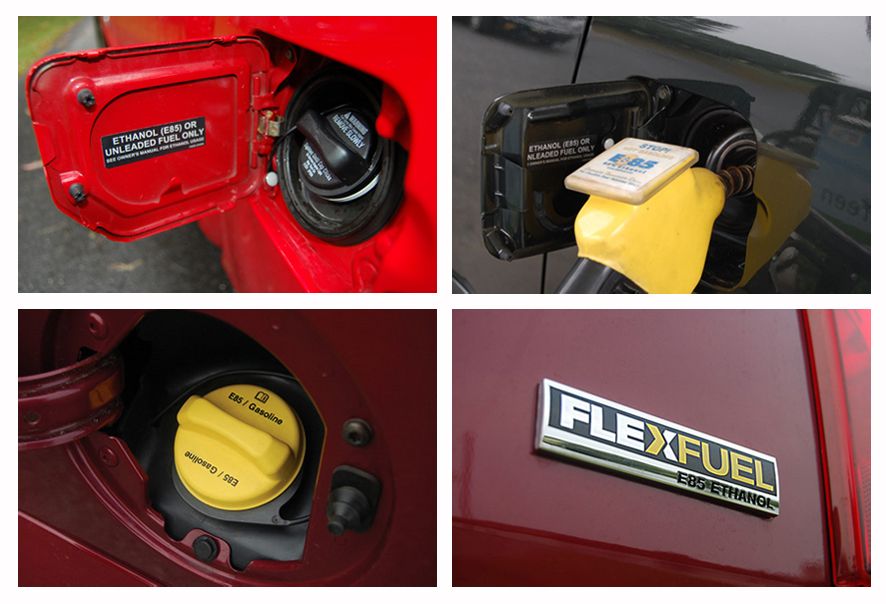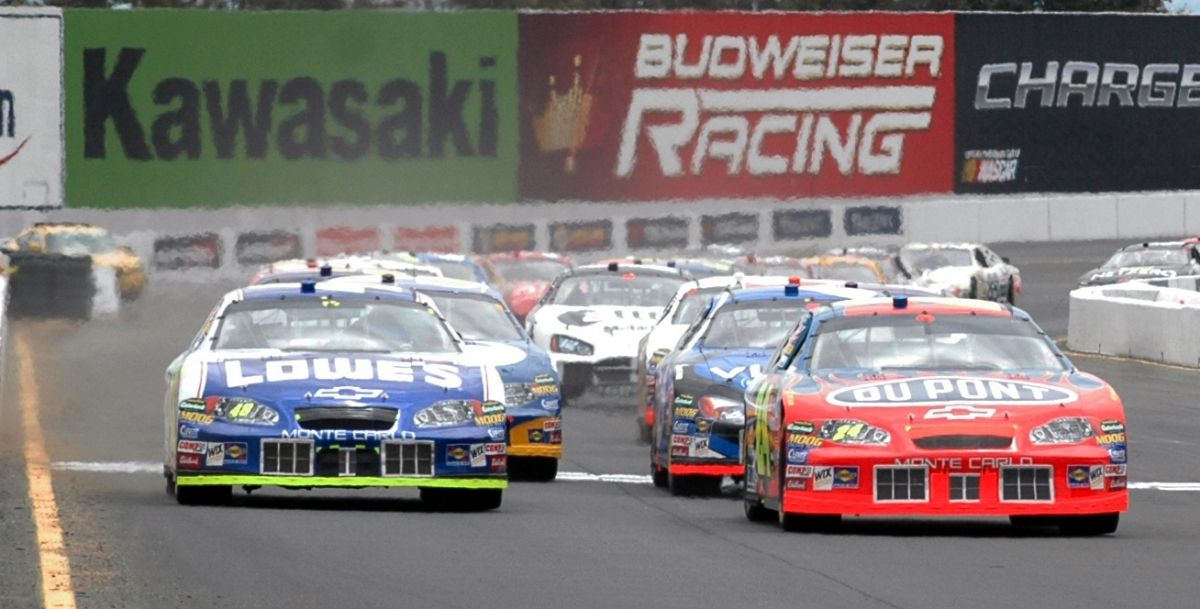There's a lot of misinformation about what can and can't be used as fuel for your car. The time has come to get the record straight. Perhaps you've heard that alcohol can be used as fuel for your car, but is this true? Can you really pour a jar of moonshine into your gas tank and watch your car take off?
What Is Ethanol?
Ethanol is an organic compound found in all liquors and beer. There are a few names for it, including ethyl alcohol, grain alcohol, and alcohol. Its three characteristics are flammability, lack of color, volatility, and it can make us drunk.
The molecule is composed of two carbon atoms attached to a bunch of hydrogen atoms. These hydrogen atoms are connected to an oxygen and hydrogen atom called a hydroxyl group.
It is created through the fermentation of glucose, which is found in grains and sugar-based crops containing starch. Common crops used to make ethanol are wheat, rye, corn, sugar cane, and barley.
What Is Ethanol Fuel (FlexFuel)?
By volume, ethanol contains around 1/3 less heat energy than gasoline. In gas stations across the country, regular fuel is available in E10 and E15. The "E##" denotes the volume of ethanol in the gasoline, which is relatively similar worldwide. However, there is also something known as E85, called FlexFuel. E85 contains 85% ethanol. Flexible fuel vehicles have engines specially designed to accommodate ethanol and gasoline mixtures.
FlexFuel cars have different fuel injectors, fuel pumps, and lines to accommodate the FlexFuel mix. In the past, when ethanol and gasoline were first combined, it was very corrosive to gaskets and seals.
They've since resolved the issue in newer cars, but older cars aren't so lucky. The problem with using high ethanol fuels in regular cars is that it attracts water, creating corrosive bacteria.
If fuel isn't burned and refilled regularly, metal parts in your car's fuel system will corrode. It goes without saying that this would be terrible for your fuel tank.
Isopropyl Alcohol and Common Alcoholic Beverages Contain Ethanol
There are so many types of spirits, all of which contain ethanol. To simplify things, we'll focus on whiskey, moonshine, vodka, Everclear, and finally, isopropyl alcohol (IPA), which cannot be consumed. The fundamental difference between different alcoholic beverages is what type of grain or other crop is used during the fermentation and distilling process and the alcohol content of the finished product.
Whiskey
Whiskey is an alcohol derived from fermented cereal grains, usually wheat, barley, corn, rye, etc. A charred barrel made from cherry wood or white oak is used for aging. The finished product usually consists of 40% of alcohol.
Moonshine
Moonshine has a long history, dating back to the 1700s. However, it really made its mark in the 1920s during prohibition. Synonymous with bootleggers, it was made and transported illegally in mason jars. Moonshine can be made of any grain or fruit and doesn't have to follow a certain method, as moonshiners have their own techniques for making the potent alcohol.
Isopropyl Alcohol (IPA)
IPA alcohol is a clear liquid used for many things. It evaporates quickly and leaves no residue, making it perfect for the medical industry and general cleaning of glass and electronics. Isopropyl alcohol is an ethanol and water mixture, ranging from 50 to 99 percent alcohol.
Vodka
Vodka comes in many versions, depending on the country, but most variations are clear and made from water and ethanol. Vodka is typically made from fermented grain and potatoes, consisting of 40% alcohol and 60% water. There is no aging process in making vodka, like with whiskey.
Everclear
Everclear is an alcohol made from corn. It has a high alcohol content of 190 proof. For comparison purposes, a normal bottle of vodka is only 80-proof. One Everclear serving of .63 ounces contains a whopping 95% alcohol content and 5% water.
Can You Run Your Car on Alcohol?
Well, it depends on the car. Race cars run on an ethanol-based blend (for example, NASCAR uses an E15 blend, while in 2022, F1 was using an E10 blend), so the short answer would be yes—but not without some modifications. Knowing how to read an ECU data log and what it means for your car is important if you're running ethanol. Since it burns hotter and evaporates faster than gasoline, using it wouldn't be practical in a normal engine.
There are also two primary factors to consider, such as the year of the car and if the car has a carburetor or automatic fuel injection engine. A carburetor takes in air and fuel, then mixes them so the engine runs smoothly. If there is too much air and not enough fuel, the car will run lean. This basically means there is a possibility that the engine won't run because there is too little fuel.
Automatic fuel injection is a system that injects the right amount of fuel into the engine cylinders at the right time. It is a closed-loop system that constantly monitors exhaust gases to ensure that the correct mixture is being burned. The benefits include increased fuel efficiency, reduced emissions, and improved engine performance.
However, running a car primarily on ethanol is incompatible with a normal gasoline engine. You'd expect engine sputters and stalls due to the lack of efficiency, which could (and would likely) lead to other issues.
Newer performance cars have more sophisticated engines and computers that could effectively use higher blends of ethanol fuel, unlike older cars, which would struggle to burn the ethanol effectively. Just as you can convert a gasoline vehicle to an electric vehicle, you can also DIY convert a gasoline engine to run solely on ethanol.
What Are the Pros and Cons of Using Alcohol as a Fuel?
There are some pros and cons to switching from gasoline to ethanol fuel. For example, the amount of land required to grow enough corn to produce enough ethanol could be a problem in the future. Another potential issue is that using crops to produce ethanol could hurt the world's food resources, resulting in food shortages.
Despite that, some countries already use a high ethanol fuel blend, like Brazil's E25, with India planning to do the same by 2025. India's move from traditional gasoline to ethanol will reduce pollution because it burns cleaner than gas. It will also reduce oil import costs and hopefully bring more investors to the country.
The bottom line is that while some cars can run on ethanol without problems, others will find it difficult. The fact that ethanol attracts and absorbs water is bad for any engine not designed to deal with it. Will the world switch from gasoline to ethanol as an alternative fuel source? It's unlikely, as most cars on the road will have to be modified, which would be another headache altogether.




